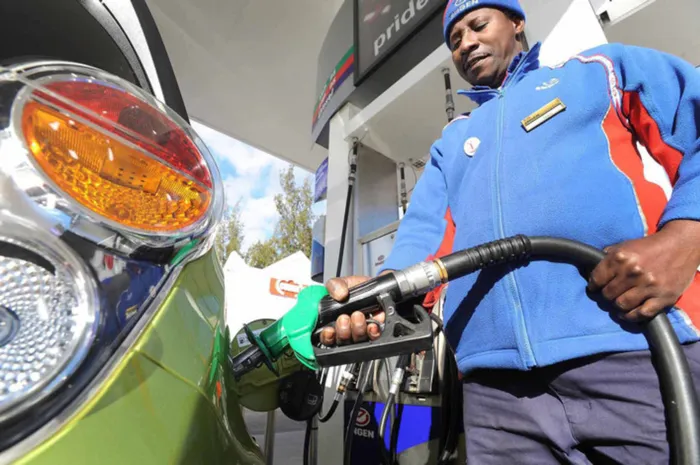Political instability threatens car market

Cape Town 010912 Petrol prices are set to increase by 93c by Wednesday 05 September 2012. picture : neil baynes Cape Town 010912 Petrol prices are set to increase by 93c by Wednesday 05 September 2012. picture : neil baynes
Roy Cokayne
Political instability is one of the biggest threats facing South Africa’s automotive market.
This was the consensus of panellists during a discussion on “Affordability, Choice and Demand: The road ahead for South Africa’s vehicle market” hosted by Standard Bank and Future Group yesterday.
However, the panellists were still bullish about new vehicle sales growth next year.
Derik Scorer, the chairman of the National Automobile Dealers’ Association (Nada), said the oil price and the country’s political stability were the biggest worries.
If the oil price increased significantly, it could adversely affect the ability of many people to enter the new car market and many people would downscale their purchases, he said.
Scorer said the industry depended heavily on political stability and stressed the importance of the country getting through the ANC’s national conference in Mangaung in December “with flying colours in the eyes of the world” and the JSE not taking “a big dip” like it did on Wednesday.
Brian Smith, the head of the fleet and pre-owned division at Renault South Africa, said political instability and the international perception of it was probably the biggest worry facing the industry.
Smith said he constantly received questions about the country’s instability from his European colleagues based at the parent company’s head office in Paris.
Keith Watson, the head of sales at Standard Bank vehicle and asset finance, said domestic instability and the instability in Europe and the rest of the world caused by the debt crisis were worrying.
Watson said that if the financial instability in Europe and the world did not continue to improve, it would lead to the domestic market being “battered”.
Roland Reid, the marketing director for Jaguar Land Rover South Africa, said unpredictable international incidents were the greatest worry, such as the European debt crisis and the tsunami in Japan last year, both of which had a huge impact on the domestic industry.
However, Reid admitted the Tata-owned company was more optimistic than most about the prospects for sales next year and believed new car sales growth would be strongest in the premium segment and lower end of the market.
Reid forecast growth of between 12 percent and 15 percent in the premium car market segment for next year and similar growth at the lower end of the market.
He also believed this growth would continue in the years after 2013, particularly in the premium segment, because of the broadening of wealth in the country and more South Africans being able to afford more expensive vehicles.
Scorer agreed that the prospects for the new car market next year looked good.
He said the industry had returned to prosperity after the slump caused by the introduction of the National Credit Act and global financial crisis and believed the new car market would achieve sales growth of 10 percent this year and growth above 5 percent next year.
Watson forecast growth in new car sales of above 5 percent but closer to 8 percent for next year, based on expectations that interest rates would remain low for the next few years, which was positive for vehicle affordability.
Smith said Renault SA was very bullish about the future and was forecasting new car sales growth of about 7.5 percent for next year.
This was also based on Renault SA’s anticipation that interest rates would remain “palatable” over the next number of years.